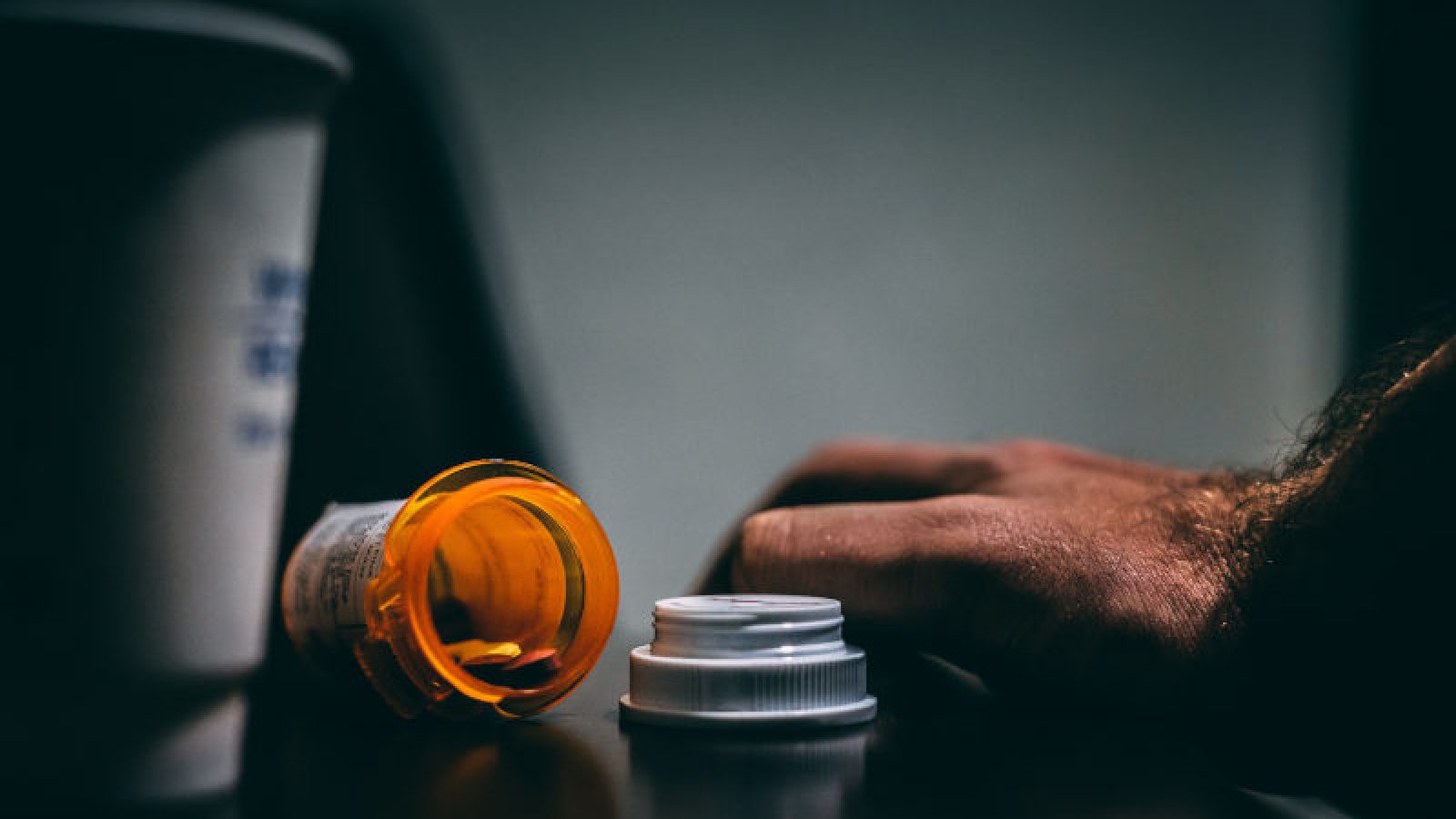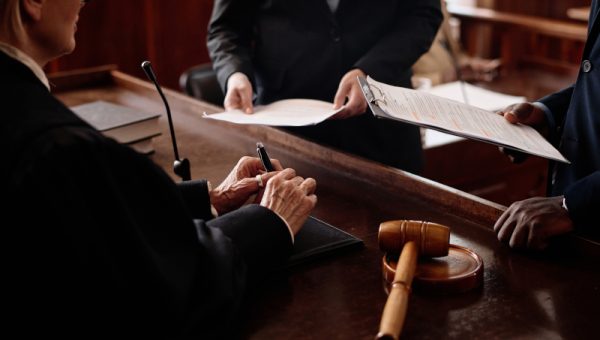Understanding the gravity of drug offences in Queensland is crucial for those caught amid legal proceedings. This article simplifies and clarifies the nature of drug offences, the accompanying legal consequences, and viable defence strategies to assist individuals and their families in better navigating this challenging terrain.
Defining Drug Offences
Types of Drug Offences in Queensland
Possession of Illegal Drugs
Possession of dangerous drugs is perhaps the most common drug offence in Queensland. This offence isn’t limited to having illegal drugs on your person. It extends to having them stored in places you have access to or control over, such as in your home, vehicle, or even a locker.
Defining ‘Possession’
In Queensland law, ‘possession’ involves more than simply having the drug on your person. It generally requires proof of two key elements:
- Custody or Control: You must have had actual physical custody of the drug or the ability to control its disposition or use.
- Knowledge: You must have been aware that the drug was in existence.
Types of Drugs
The types of drugs considered dangerous or controlled substances under the Drugs Misuse Act 1986 (Qld) include substances such as cannabis, cocaine, heroin, methamphetamines, ecstasy (MDMA), and certain types of prescription medications if they are possessed without a valid prescription.
Penalties
In Queensland, the penalties for possession of dangerous drugs can vary widely based on several factors, including the type and quantity of the drug, and whether you have prior convictions.
The maximum penalty for possessing dangerous drugs can range from 15 to 25 years imprisonment, depending on factors such as the drug’s schedule and quantity.
It’s also important to note that drug convictions can have long-lasting implications beyond the immediate legal penalties, potentially impacting future employment prospects, travel rights, and personal reputation due to the social stigma attached to drug offences.
Legal Defences
Several potential legal defences can be used to challenge charges of possessing dangerous drugs in Queensland. The specifics will depend on the circumstances of the case, but some common defences may include arguing that:
- You didn’t know you were in possession of the drugs.
- You didn’t know the substance in your possession was a controlled or dangerous drug.
- The drugs were for personal use only, and not for supply (which can sometimes result in a lesser penalty).
- The evidence was improperly or unlawfully obtained by law enforcement.
Supplying Dangerous Drugs
The act of supplying dangerous drugs is considered a severe offence under Queensland law. It is important to understand what this offence encompasses, the potential penalties involved, and possible defence strategies.
Definition of ‘Supply’
‘Supply’ in relation to Queensland’s drug laws is defined more broadly than simply selling drugs. The Drugs Misuse Act 1986 (Qld) defines supply to include giving, distributing, selling, administering, transporting, or even offering to do any of these things. It also includes preparing a dangerous drug to give to another, or even providing a dangerous drug prescription to someone else without legal authority to do so.
It’s important to note that ‘supply’ can still be established regardless of whether a transaction has taken place or money has changed hands. For example, simply passing a cannabis joint to a friend at a party could be considered ‘supplying’ under the law.
Types of Drugs and Potential Penalties
Like with possession, the types of drugs classified as ‘dangerous’ encompass a broad range, including cannabis, cocaine, heroin, methamphetamines, ecstasy (MDMA), and certain prescription medications if supplied without a valid prescription.
The penalties for supplying dangerous drugs in Queensland can be heavy, often more so than for possession. They are determined based on several factors, including the type and quantity of drug, the circumstances of the supply, and whether the person being supplied is a minor.
For Schedule 1 drugs (like MDMA, cocaine, or methamphetamines), the maximum penalty for supply can reach up to 25 years’ imprisonment. For Schedule 2 drugs (like cannabis), the maximum penalty is up to 20 years’ imprisonment depending on the specific circumstances.
Legal Defences
Potential legal defences for charges of supplying dangerous drugs are complex and require professional legal advice. Some possible defences could include:
- The accused was not in possession of the drug.
- The accused did not supply the drug.
- The substance supplied was not a dangerous drug.
- The evidence was improperly or illegally obtained by law enforcement.
Regardless of the specifics, facing a charge for supplying dangerous drugs is a serious situation requiring expert legal advice. It’s crucial to consult with a lawyer who can help navigate the complexities of the law and develop an effective defence strategy.
Trafficking Dangerous Drugs
One of the most serious drug-related offences in Queensland is drug trafficking. This offence is viewed gravely due to its potential to harm and exploit individuals and communities.
Definition of ‘Trafficking’
In the context of drug law, trafficking is more than just selling or distributing drugs. As per the Drugs Misuse Act 1986 (Qld), ‘trafficking’ means to engage in the selling, providing, transporting, or distributing of dangerous drugs on a continual basis. It also encompasses taking part in the activities of a business or organised operation that does the same.
Importantly, the law in Queensland recognises that trafficking doesn’t necessarily involve financial gain. For instance, a person continually supplying drugs to others, even without profit and for purposes such as maintaining a communal drug supply or sustaining their own addiction, can still be found guilty of trafficking.
Trafficking can involve any of the drugs considered ‘dangerous’ under Queensland law, including but not limited to cannabis, cocaine, heroin, methamphetamines, and ecstasy (MDMA).
Potential Penalties
The potential penalties for trafficking dangerous drugs in Queensland are among the most severe in the legal system. If found guilty of drug trafficking, an individual can face a maximum penalty of between 20- and 25 years imprisonment, depending on the type of drug involved. This reflects the severity with which Queensland law views drug trafficking, considering it a crime against society’s well-being.
Factors that can influence the severity of the sentence include the quantity and type of drug, the sophistication and scale of the operation, the duration of the trafficking, and the offender’s level of involvement and personal circumstances.
Legal Defences
The complexity and seriousness of drug trafficking charges require the guidance of experienced legal professionals. Some possible defences against a trafficking charge could include:
- The accused was not involved in the trafficking operation.
- The drugs involved were not dangerous drugs under the law.
- The accused was not engaged in trafficking continually.
- The evidence was improperly or illegally obtained.
Producing Dangerous Drugs
Another major category of drug offences in Queensland involves the production of dangerous drugs. This is a serious offence with significant legal consequences.
Definition of ‘Producing’
In the context of Queensland’s drug laws, ‘producing’ refers to any activity involved in creating a dangerous drug. This includes all stages of drug production, from the cultivation of plants to the manufacture or synthesis of drugs, and even allowing another person to produce a dangerous drug on your property.
The Drugs Misuse Act 1986 (Qld) includes a range of activities under the term ‘producing’, such as:
- Cultivating or preparing a plant, or any part of it, for the purpose of producing a dangerous drug.
- Manufacturing a dangerous drug which can include the process of extracting or refining it.
- Packaging or repackaging, labelling, or relabelling, the container or wrapper of a dangerous drug.
- Providing or arranging the provision of equipment, chemicals, or other materials, or a location, for producing a dangerous drug.
Potential Penalties
The penalties for producing dangerous drugs in Queensland can be severe. If found guilty, an individual can face up to 25 years imprisonment, depending on the circumstances. These circumstances include the type and quantity of drug involved, the scale of the operation, and the intent behind the production.
The court will consider the seriousness of the offence and any aggravating factors, such as if the production posed a risk to children, or if it was linked to a larger, organised operation. The court will also consider any mitigating factors, such as the offender’s personal circumstances and any previous criminal history.
Legal Defences
Building a defence against a charge of producing dangerous drugs requires professional legal expertise due to the complexity of the law and the potential severity of penalties. Some potential defences may include:
- Challenging the nature of the substance in question – asserting it is not a ‘dangerous drug’ under Queensland law.
- Asserting that the accused was not aware of the production.
- Challenging the legality or process of obtaining evidence.
Legal Consequences of Drug Offences in Australia
Criminal Convictions and Penalties
The severity of penalties for drug offences in Australia typically depends on the type and quantity of the drug, the nature of the offence, and whether the offender has prior convictions.
Fines and Community Based Orders: An overview
In Queensland, not all drug-related offences lead to imprisonment. For less serious offences or in cases where mitigating factors are present, the court may choose to impose fines or community-based orders. The focus here is on rehabilitation and deterrence rather than punishment.
Fines
The court can impose fines as part of the penalty for drug offences. The amount of the fine is at the discretion of the court and is determined by factors such as the severity of the crime, the offender’s personal circumstances, prior convictions, and ability to pay. Fines are typically used for minor drug offences, such as simple possession or drug paraphernalia possession.
Community Based Orders
Community-based orders serve as an alternative to imprisonment and are designed to balance punishment and rehabilitation. They aim to keep the offender within the community while ensuring they are held accountable for their actions. There are several types of community-based orders, including:
- Probation: Probation requires the offender to follow certain conditions for a set period, typically between six months and three years. Conditions may include regular reporting to a probation officer, participating in counselling or treatment programs, and not committing further offences.
- Community Service Order (CSO): A CSO requires the offender to perform unpaid community service work. The amount of work is specified in ‘hours’ and should be completed within 12 months. The type of work is often assigned based on the offender’s capabilities.
Imprisonment
In Queensland, imprisonment is typically reserved for serious drug offences, repeated offenders, or cases where the court considers there is no suitable alternative punishment. However, the threat of imprisonment does hang over the head of anyone facing drug charges, given the potential gravity of such offences.
When is Imprisonment Imposed?
The imposition of a custodial sentence largely depends on the nature and seriousness of the drug offence committed, as well as a range of other factors considered by the court.
For instance, trafficking, supplying, or producing dangerous drugs, especially in commercial quantities, often lead to imprisonment due to the severity and community impact of these crimes. Prior convictions, particularly prior drug convictions, can also significantly impact sentencing decisions and increase the likelihood of imprisonment.
However, even for serious drug offences, the court may consider custodial sentences that allow the offender to remain in the community. For example, a wholly suspended term of imprisonment or a term of imprisonment with an immediate release on parole.
Impact of quantity and type of drug on penalties
The type and quantity of the drug involved in an offence significantly influences the severity of the penalties that may be imposed upon conviction in Queensland.
Drug Schedules and Classifications
Queensland law classifies drugs into different ‘schedules’, each carrying varying penalties based on the perceived risk and harm associated with their misuse. For example, Schedule 1 drugs, such as heroin, cocaine, amphetamine, and methamphetamine, are viewed as posing the highest risk and thus attract severe penalties. Schedule 2 drugs, including cannabis, codeine, and morphine, are considered less harmful but still attract substantial penalties.
Impact of Quantity on Penalties
The quantity of the drug involved in the offence can drastically influence the penalties imposed. Queensland law defines specific quantity thresholds for each type of drug, and these thresholds serve as a basis for determining the severity of the offence and the associated penalty.
For instance, if someone is found guilty of possessing a Schedule 1 drug, the quantity of the drug can place the offence into one of the following categories:
- Less than 2 grams: up to 15 years imprisonment.
- Over 2 grams: up to 25 years imprisonment.
These penalties apply to possession only. The penalties for trafficking, supplying, or producing a dangerous drug can be even more severe, particularly if it involves a Schedule 1 drug and significant quantities.
The Impact on Personal and Professional Life
Being convicted of a drug offence can have severe and far-reaching implications beyond the immediate legal penalties such as fines, community-based orders, or imprisonment. These consequences can affect various aspects of a person’s personal and professional life, significantly impacting their prospects and daily existence.
Criminal Record: Consequences for Future Employment
In Queensland, a drug conviction will typically result in a criminal record. This record is accessible during background checks conducted by employers, potentially restricting job opportunities for the convicted person. Certain professions are particularly sensitive to drug offences, including law enforcement, healthcare, education, and positions involving children, vulnerable adults, or security matters. A drug conviction can make it challenging to enter or continue in these fields.
In some circumstances, the court may decide to record a conviction without punishment or not record a conviction despite punishment (pursuant to section 12 of the Penalties and Sentences Act 1992 (Qld)), which can be crucial in mitigating these employment-related consequences.
Impact on Travel Rights and Immigration Status
A drug conviction can also complicate international travel. Many countries, including the United States and Canada, may deny entry to individuals with drug offences on their record. For non-Australian citizens living in Queensland, a drug conviction might also impact their immigration status, potentially leading to visa cancellations or refusals, or even deportation in serious cases.
Understanding the Legal Process
The legal process for dealing with drug offences in Queensland is complex and multifaceted. To those not well-versed in the legal realm, it can often feel overwhelming and intimidating.
The Role of Law Enforcement
Law enforcement plays a critical role in the initial stages of a drug offence case. This stage is predominantly concerned with evidence collection and establishing the grounds for a charge.
Evidence Collection: Search Warrants and Surveillance
To collect evidence in drug cases, law enforcement agencies often employ a variety of techniques. This can include physical surveillance, covert operations, and the use of informants. If the police believe they have sufficient evidence, they may apply for a search warrant to search a person’s premises for drugs or other drug-related items.
Under Queensland law, police must comply with strict rules and procedures when applying for and executing a search warrant. If these procedures are not correctly followed, any evidence obtained could potentially be challenged in court.
Arrest and Bail Process
If the police believe they have sufficient evidence, they can arrest the individual in question and charge them with a drug offence. Following an arrest, the individual will be taken to a police station where they will be formally charged.
At this point, the question of bail arises. Bail is the temporary release of an accused person while they await trial. The decision to grant bail is based on several factors, including the severity of the alleged offence, the accused’s criminal history, and the likelihood of the accused person appearing in court.
The Court Process Explained
Once charges are laid, the accused person will face court proceedings.
Differences between Magistrates Court, District Court, and Supreme Court Proceedings
In Queensland, drug offences can be dealt with either in the Magistrates Court, District Court, or Supreme Court, depending on the seriousness of the offence.
Less serious drug offences, such as possession of a small quantity of a drug or a supply of a schedule 2 drug, are typically heard in the Magistrates Court. More serious offences, such as trafficking, production, or large-scale possession, are dealt with in either the District Court or Supreme Court.
In the Magistrates Court, a single magistrate will hear the case, while in the District Court and Supreme Court, a judge and a jury will typically preside over the proceedings. The role of the jury is to listen to the evidence presented and determine whether the accused person is guilty or not guilty.
The Role of the Accused and their Legal Representation
The accused person, along with their legal representation, will have the opportunity to present their case, challenge the evidence against them, and potentially call witnesses. They can also negotiate with the prosecution for a reduced charge or sentence.
This process can be lengthy, and outcomes are not guaranteed. It is critical for those facing drug charges to engage the services of an experienced criminal defence lawyer. They can help guide the accused through the complexities of the legal process, protect their rights, and advocate for the best possible outcome.
Rehabilitation and Recovery
The struggle with substance misuse is often an uphill battle, requiring both personal determination and professional support. The legal system in Queensland recognises this struggle and provides several mechanisms to help individuals address their drug-related problems. These are incorporated into the legal response to drug offences, providing pathways for recovery in tandem with the legal consequences of drug offences.
Drug Diversion Programs in Queensland
Drug diversion programs are initiatives that aim to divert offenders with drug use issues away from the criminal justice system and into appropriate drug treatment programs. These programs focus on addressing the root cause of drug-related offending: the drug use itself.
Eligibility and Benefits
Eligibility for drug diversion programs in Queensland typically depends on the nature of the offence and the offender’s history. For instance, the Police Drug Diversion Program is available for minor drug offenders, where the person must admit to the offence and not have a criminal or drug history.
Diversion programs can provide several benefits. These may include the opportunity to avoid a criminal record, providing the individual meets certain conditions and completes the program successfully. Also, the individual gains access to education and treatment programs, which can help them address their drug use, reducing the likelihood of reoffending.
Overcoming Addiction: Professional Help and Resources
Beyond legal interventions, there is a range of professional resources available for individuals struggling with drug misuse in Queensland.
Detox and Rehab Centres in Queensland
There are many detox and rehabilitation centres across Queensland that provide various services, from inpatient detoxification to outpatient counselling and support groups. These centres typically offer evidence-based treatments, including cognitive-behavioural therapy, motivational interviewing, and contingency management, among others.
Online Resources and Helplines for Drug Addiction
In the digital age, help can often be just a click or a phone call away. There are numerous online resources available that provide information, self-help tools, and ways to connect with others in similar situations.
Queensland Health’s Alcohol and Other Drugs Services (AODS) is one organisation that can provide crucial assistance. The service is made up of specialised clinical staff who can provide a range of treatments and support to individuals and their families dealing with alcohol and other drug concerns.
Another excellent resource is Lives Lived Well, a Queensland-based non-profit organisation that supports people impacted by drugs and alcohol. They provide a range of services, including online programs, residential programs, and individual and group therapy. They also provide a digital resource hub with numerous tools for those seeking to understand and overcome addiction.
Conclusion
Understanding drug offences and their corresponding legal consequences in Queensland is of utmost importance, not only for those charged with offences but also for society at large. Drug offences, ranging from possession to trafficking and production, carry severe penalties that have profound impacts on both the personal and professional lives of convicted individuals.
The legal process may seem intimidating and overwhelming at first, but equipped with the right knowledge and guidance, one can navigate it with greater confidence. Having competent legal representation specialising in drug offences is vital in ensuring a strong and fair defence.
Additionally, it is crucial to acknowledge the role of rehabilitation and recovery in the context of drug offences. This highlights the human aspect, underscoring that overcoming addiction is possible with the right support and resources. Organisations like Alcohol and Other Drugs Services (AODS) and Lives Lived Well provide invaluable assistance.
If you, or someone you know, is facing drug charges, seeking advice from a legal professional experienced in this area of law is essential.
At McConnell & Saldumbide Criminal Lawyers, we have a dedicated team of experienced criminal lawyers ready to provide you with the guidance and defence you need. We understand the complexities of drug offences in Queensland, and we’re committed to helping our clients navigate through these challenging situations.
If you or a family member needs assistance, don’t hesitate to contact us for a free, confidential enquiry.
FAQs
1. What are the common types of drug offences in Queensland?
- The common types of drug offences in Queensland include possession of illegal drugs, supplying dangerous drugs, trafficking dangerous drugs, and producing dangerous drugs.
2. What does ‘possession’ of illegal drugs mean in Queensland?
- In Queensland, ‘possession’ involves having actual physical custody of the drug or the ability to control its disposition or use, along with being aware that the drug exists.
3. What are the penalties for possessing dangerous drugs in Queensland?
- The penalties for possession can vary widely based on the type and quantity of the drug and any prior convictions. The maximum penalty can range from 15 to 25 years imprisonment.
4. What defences are available for a charge of possessing dangerous drugs?
- Common defences include arguing that you didn’t know you were in possession of the drugs, you didn’t know the substance was a controlled drug, the drugs were for personal use only, or that the evidence was improperly obtained.
5. What constitutes ‘supplying’ dangerous drugs in Queensland?
- Supplying drugs includes giving, distributing, selling, administering, transporting, or offering to do any of these things. It also covers preparing a dangerous drug to give to another or providing a prescription without legal authority.
6. What are the potential penalties for supplying dangerous drugs?
- The penalties for supplying dangerous drugs can be severe, with maximum penalties of up to 25 years imprisonment for Schedule 1 drugs like MDMA, cocaine, and methamphetamines, and up to 20 years for Schedule 2 drugs like cannabis.
7. What does ‘trafficking’ dangerous drugs entail?
- Trafficking involves selling, providing, transporting, or distributing dangerous drugs on a continual basis. It includes participating in activities of a business or organised operation related to drug distribution.
8. What are the penalties for drug trafficking in Queensland?
- Drug trafficking carries some of the most severe penalties, with maximum imprisonment of up to 25 years, depending on the type and quantity of the drug and the scale of the operation.
9. How is ‘producing’ dangerous drugs defined?
- Producing dangerous drugs includes cultivating plants for drugs, manufacturing or synthesising drugs, and preparing or packaging drugs. It also involves providing equipment, chemicals, or locations for drug production.
10. What penalties can be imposed for producing dangerous drugs?
- Producing dangerous drugs can result in up to 25 years imprisonment, depending on the type and quantity of drug, the scale of the operation, and other aggravating factors.
11. How can a conviction for a drug offence impact my personal and professional life?
- A drug conviction can lead to a criminal record, affecting future employment, travel rights, and immigration status. It can restrict job opportunities and impact professions sensitive to drug offences.
12. What are drug diversion programs in Queensland?
- Drug diversion programs aim to divert minor drug offenders from the criminal justice system into appropriate treatment programs, focusing on addressing drug use issues rather than imposing criminal penalties.
13. What should I do if I am facing drug charges in Queensland?
- It is crucial to seek professional legal advice. Engaging an experienced criminal defence lawyer can help navigate the legal complexities, protect your rights, and advocate for the best possible outcome.







